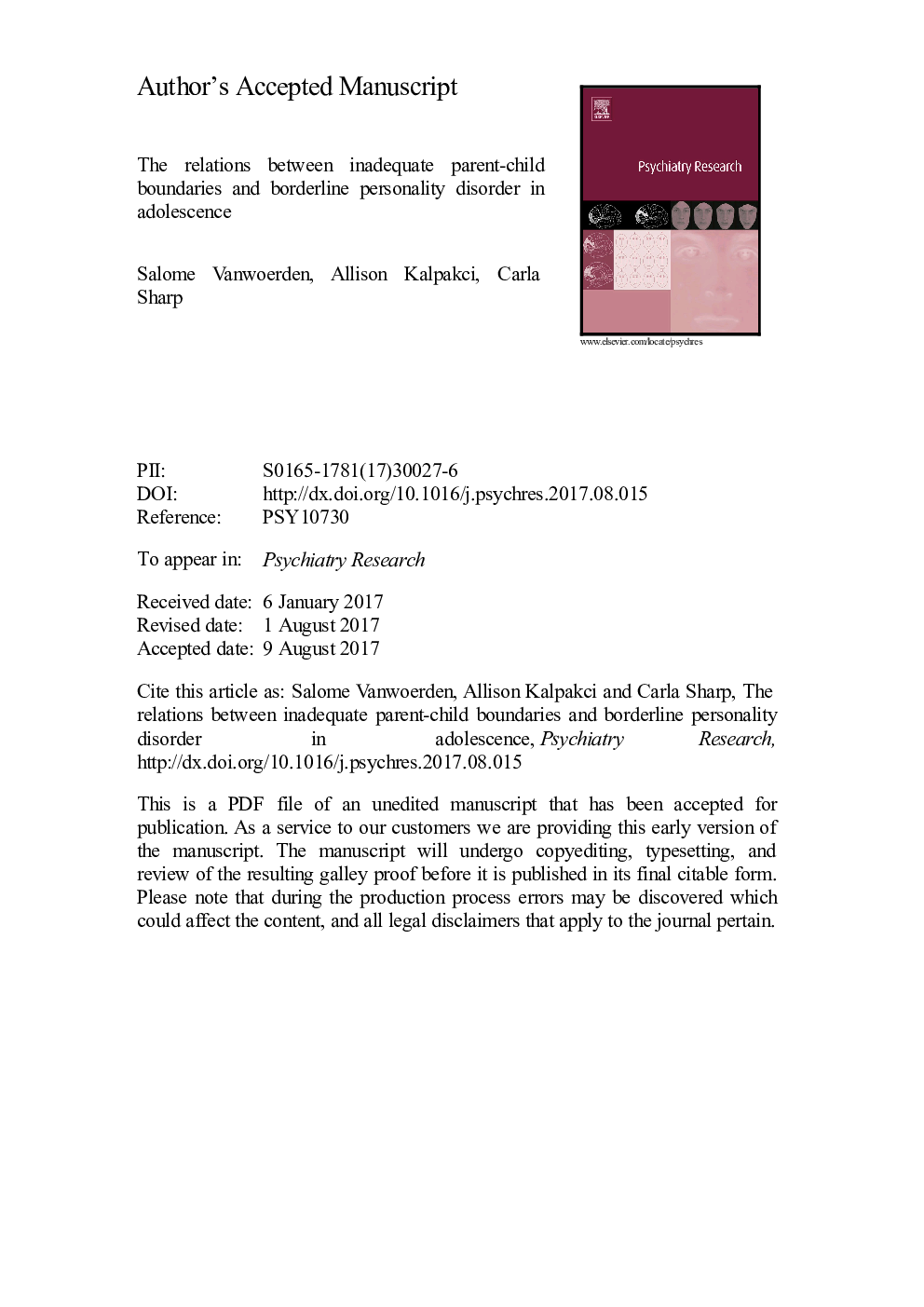| Article ID | Journal | Published Year | Pages | File Type |
|---|---|---|---|---|
| 4933517 | Psychiatry Research | 2017 | 30 Pages |
Abstract
Borderline Personality Disorder (BPD) is a severe mental illness that onsets in adolescence. Research has demonstrated the central role of parent-child relationships for the development and maintenance of BPD although more research is necessary to clarify the specific dynamics that relate to BPD during adolescence. Based on preliminary research establishing the importance of parent-child boundaries for adolescent BPD, this study sought to evaluate the relations between different forms of inadequate boundaries and BPD in adolescence using a multi-method approach. To that end, 301 adolescents (65.1% female; ages 12-17) inpatients were recruited; parents and adolescents completed questionnaire- and interview-based measures of BPD features in adolescent children and a questionnaire-based measure of parent-child boundaries. Relations were found between parental guilt induction and psychological control with children's BPD features above and beyond relations with psychiatric severity and gender. Relations between parent reports of triangulation (when children are recruited to mediate parental marital conflict) and children's BPD were contingent on the level of children's perceptions of triangulation. Findings confirm previous research suggesting the relevance of inadequate parent-child boundaries to children's BPD features and have important implications for understanding the dynamics in families with adolescents with BPD, representing a relevant treatment target.
Related Topics
Life Sciences
Neuroscience
Biological Psychiatry
Authors
Salome Vanwoerden, Allison Kalpakci, Carla Sharp,
